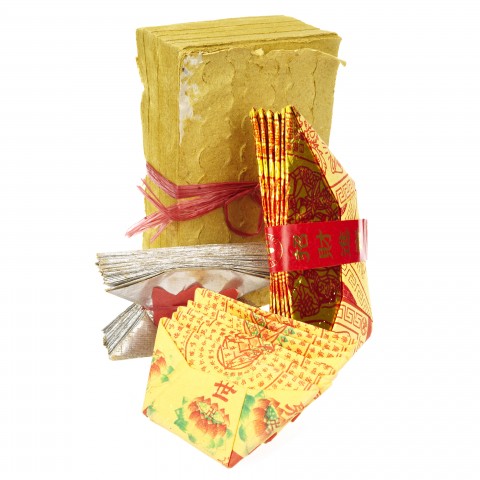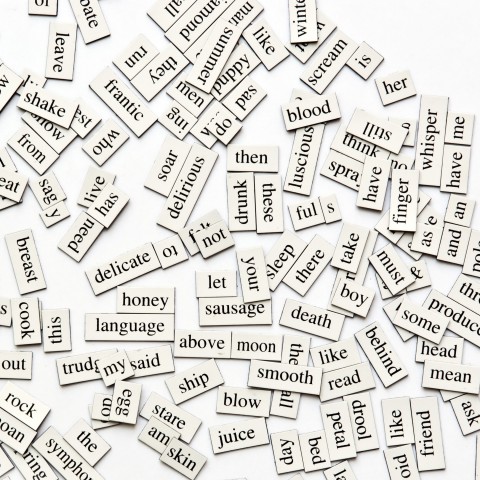The Chinese Qingming Festival is one of the most significant, culturally rich holidays in the country. Essentially, this day is reserved for honoring one’s filial piety by paying respect to deceased family and ancestors. As the holiday’s other name—Tomb Sweeping Day—indicates, people visit the graves of their ancestors to clean them and burn incense as a show of respect.
By learning about the Tomb Sweeping holiday China celebrates each year, you’re opening up your eyes to Chinese culture and providing yourself a firmer foundation for your language-learning. At ChineseClass101.com, we hope to make this learning experience both fun and insightful! Learn more about the Qingming Festival in China with us!
1. What is the Qingming Festival?
Tomb Sweeping Day is a day for worshipping ancestors. This is an important aspect of Chinese culture, and the China Tomb Sweeping Day holiday is reserved just for this. Chinese people travel (sometimes long distances) to clean the graves of their ancestors, as well as burn incense and special joss paper. This early spring holiday is a strong representation of the Chinese value of filial piety.
Learn more Qingming Festival facts below!
2. When is the Chinese Qingming Festival?
Each year, the Qingming Festival is typically celebrated on April 4 or 5, though sometimes it takes place on April 6. Though the date doesn’t vary too much from year to year, we’ll still provide you with an outline of this holiday’s date for the next ten years:
- 2019: April 5
- 2020: April 4
- 2021: April 4
- 2022: April 5
- 2023: April 5
- 2024: April 4
- 2025: April 4
- 2026: April 6
- 2027: April 5
- 2028: April 4
3. Reading Practice: How is the Qingming Festival Celebrated?
How is the Qingming Festival celebrated? Read the Chinese text below to find out (you can find the English translation directly below it).
—
富裕的家庭会在祖先的墓碑前 上香,但你也会看到许多人在街边烧纸钱。 纸钱 是烧给逝者的一些仿造的纸币,人们相信辞世的祖先在阴间也需要花钱。近年来,商家的想象力也变得 格外 丰富。你会看到各式各样的新式”纸钱”:有纸张做的美女、别墅、甚至麻将之类的东西,随着iPhone的流行,最近竟然还有纸质的iPhone 贩卖。
中国素有红白喜事,”红”指结婚,而”白”就是指亲人的离世了。人的生死是大事,尤其在重视家庭传统的中国。销售花圈、寿衣以及扫墓相关商品的”殡葬业”,这几年频频被媒体指摘为暴利行业。
踏青也是清明节的一项传统。踏青,又叫春游。四月份春回大地,到处呈现一派生机勃勃的景象,正是郊游的好时光。而放风筝也是清明时节人们所喜爱的活动。人们不仅白天放,夜间也放。这个节日中既有思念逝去亲人的悲伤,又有踏青游玩的欢笑声,是一个非常独特的节日。现在越来越多的人选择骨灰处理的方式,买。。。。
—
Wealthy families will burn incense in front of their ancestors’ tombs. Also you can see many people burning joss paper along the streets. Joss paper is a kind of fake money made to be burned for the deceased, as people believe that their deceased ancestors need money in the underworld. In recent years, the market for joss paper has become particularly creative. You can see various new shapes of joss paper such as paper beauties, paper houses, even paper Mahjong pieces. Joss paper versions of iPhones are also being sold these days because iPhones are so popular.
In China, there is a well-known saying: “wear red or white.” “Red” refers to getting married and “white” means the passing away of relatives. Birth and death are important events in peoples’ lives, especially in China, where family is greatly valued. In recent years, the “funeral industry” that sells wreaths, grave shrouds, and other related goods for sweeping tombs, has been frequently criticized as engaging in profiteering by the mass media.
Going out during the Tomb Sweeping Festival is also a tradition. It is also called the Spring Outing. In April, with the return of spring, lively and vibrant scenes are everywhere, making it a great time for an outing. Flying kites is a popular activity for the Tomb Sweeping Festival. People fly kites both at night and during the day. The sorrow of missing loved ones who have passed and happiness from the outing combines in this festival, making it very special.
4. Additional Information
There are many traditional taboos for the Tomb Sweeping Festival. For example, people should avoid fire, using needles, and washing clothes on that day; in most regions, women should avoid walking. However, people rarely observe these traditions in modern times.
Also note that people can take three days off for the Tomb Sweeping Festival. Unless it’s Spring Festival, National Day, or Labor Day, people can only take one day off for all the other national holidays in China. From this, you can see the importance of the Tomb Sweeping Festival.
One of the most common Qingming Festival foods is sweet green rice balls, a favorite for this holiday. These are prepared in advance, to free up the actual holiday for the traditional activities.
5. Must-know Vocab
Here’s some vocabulary you should know for the Qingming Festival in China!
- 重要性 (zhòngyàoxìng) — importance
- 国庆节 (Guóqìng jié) — national day
- 劳动节 (láodòng jié) — labor day
- 贩卖 (fànmài) — to sell
- 行路 (xínglù) — walking on the road
- 刻意 (kèyì) — deliberately
- 红白喜事 (hóngbái xǐshì) — weddings and funerals
- 格外 (géwài) — extraordinary
- 忌 (jì) — to avoid
- 上香 (shàngxiāng) — to burn incense
- 祭祖 (jìzǔ) — to worship ancestors
- 烧香 (shāoxiāng) — burning incense
- 纸钱 (zhǐqián) — paper money
- 踏青 (tàqīng) — outing
- 清明节 (qīngmíng jié) — Qingming festival
- 扫墓 (sǎomù) — grave-sweeping
- 殡葬业 (bìnzàng yè) — funeral industry
- 暴利 (bàolì) — excessive profit
- 指摘 (zhǐzhāi) — accusation
- 生机勃勃 (shēngjībóbó) — vibrant
You can check out this lesson on the Tomb Sweeping Festival to hear each word pronounced. Here, you’ll find each word accompanied by an audio of its pronunciation.
Conclusion
What do you think about the Qingming Festival in China? Is there a similar holiday in your own country? Let us know in the comments!
We hope you enjoyed learning about China’s Tomb Sweeping Day with us. If so, you can visit us at ChineseClass101.com for more information on Chinese culture and the Chinese language. We offer an array of insightful blog posts, free vocabulary lists, and on online community to discuss lessons with fellow Chinese learners. You can also upgrade to Premium Plus to take advantage of a one-on-one learning experience with our MyTeacher program!
Know that your hard will pay off, and with enough practice and determination, you’ll be speaking Chinese like a native before you know it! We wish you the best in your language-learning journey.













